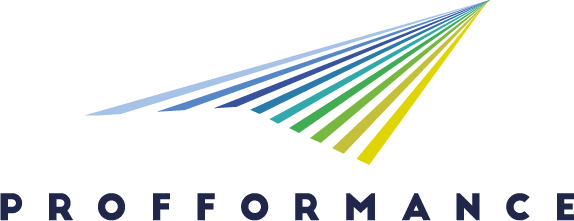Vets4BeesPath
Veterinarians for Bees Pathway
- 01 - Education
- 08 – Agriculture, forestry, fisheries and veterinary
- 09 – Health and welfare
- Other:
Note: In Croatia Veterinary medicine is classified under Biomedicine field (Medicine, Dental medicine, Pharmacology and Vetererinary medicine).
1. Student-centered course design
According to Iatridou et al. 2019 (doi:10.1136/vetreco-2019-000343) there is a strong need for international education of veterinarians in different study levels due to the large variation in curriculums within the studies for teaching honeybee biology and pathology throughout the different study curriculums trough the Europe. The veterinary profession strongly promotes the principle of lifelong learning and harmonization of undergraduate and postgraduate curriculum for ensuring the proper implementation of the teaching of honeybee medicine. Vets4BeesPath include learning, teaching and assessment practices linked with research on undergraduate, master and doctoral studies. Also it enclose the benefical insects (honeybees, bumblebees, solitary bees) biology and diseases, as well as managing practicies and practical skills. Practices include discussions, research and use of the educational models, examinations of honeybee colonies and work on productive apiaries. Existing skills lab for beekeeping and diagnostic laboratory APISlab offer many possibilities for vertical and interdisciplinary approach learning of biology – technology – hive products – diseases. That means handling, examining, diagnosing and treating the bees, as well as ensuring the biosecurity. Also, students are actively included in research for preparing their graduate and doctoral thesis. There is a possibility of choosing the optimal or attending elective courses from the area of production and elective courses from other studies is a novelty that provides education and training of students in the best possible manner according to their wishes and preferences. In frame of international cooperation, staff and students mobility the exchange of practice is interconnected. This way of learning enable students to acquire the necessary competences and hands-on skills to be ready to practice veterinary medicine in field of beekeeping. Consequently, veterinarians under umbrella of One health approach and with join efforts with other disciplines and professional parties (policy makers, farmers) get healthy honeybee products and improved insect pollinators diversity.
Methodology
Tools, equipment, technology used
Outcomes and outputs, main results
Lessons learnt
Adaptability and sustainability of the best practice (for other institutions)
Promotion of best practice
Scope and impact
- Course/department level
- Faculty level
- Institutional level
- Cross-institutional level
- National level
- EU/EHEA/International level
6.1 Digitalization
- Other:
Students, teachers and administrative employees are connected thru Information System in Higher Education (hr. ISVU), so its include stady program names, levels of study programms, academic titles, qualifications, vocations, courses, types of classes and descriptions, elective groups, weekly lessons plans, ect. ISVU suports various certificates, diplomas, supplements, final exams and diploma thesis, results of final exams,...etc.
Reasoning: Everyday using of ISVU system. At Faculty level studens have available softwer Learning Management System (LMS) were all datas linked with individual subjects or courses, semestral students studying programm schedule, all lecturing materials-presentations-educational videos, possibility of on line short exams, etc. Practicals in form of special clinical exercises at field requires using of different mobile applications regarding monitoring of environmental, in hive conditions, scales, GPS, ..
6.2 Internationalization
- Outstanding practices of international online collaborative learning
- Developing students' multicultural awareness
- Students engagement in international projects
- Courses implemented in international cooperation (projects, co-teaching, virtual/blended mobility, etc.)
- Courses offered to international multicultural students both online and offline
Reasoning: In the field of international cooperation and mobility, Faculty is an internationally recognized that promotes cooperation between the lecturers of honeybee courses with higher education institutions in the region and the world. Honeybee veterinary medicine is field of study which is very important element in strengthening the international recognition of the Faculty and its involvement in exchanging of knowledge and skills linked with beneficial insects and beekeeping. See Promotion section.
6.3 Inclusion and diversity, universal design
- Other:
Specialistic courses for lifelong education. Professional meeteengs with official veterinarians at veterinary stations. Practical workshops incorporated in Programs of scientific-professional conferences. SUMMER SCHOOL FOR European College of Zoological Medicine RESIDENTS
Reasoning: Out of regular curicullums for honeybee field, due to general benefical insects pollination and diversity significance, there are specialistic courses organised for lifelog education of veterinarians, beekepers, other interested stakeholders and policymakers. Specialistic courses: Honeybee Diseases; Recognizing of Honey Bee Diseases; Official sampling in beekeeping; Early dectection of Aethina tumida. Also, education of youngs and children of different age is performed in special terms.
6.4 Sustainability
- Teaching material contains profession related sustainability aspects
- Special courses reflecting to UN 2030 Sustainability goals, Green Deal - mini-courses, microcredentials
- Social entrepreneurship projects, service-learning in the topic
- Extra-curricular student activities for sustainability
- Environmental attitude, skill development and assessment either general or profession-related
- Sustainability aspects are considered in all phases of the learning practice - "hidden curriculum"
Reasoning: Honeybee veterinary medicine is offten called „minor veterinarian field“ is increasingly conscious of the stakeholders involved in the current honey bee health situation. Practice of education with incorporated recognizing of sensitive topic and communicate appropriatly in challenging situations describes its sustainability. e.g. participation in EIT Food Challenge Lab 2021 (mentor, students and employees) e.g. vet students volountire at Educative bees station, APISlab

